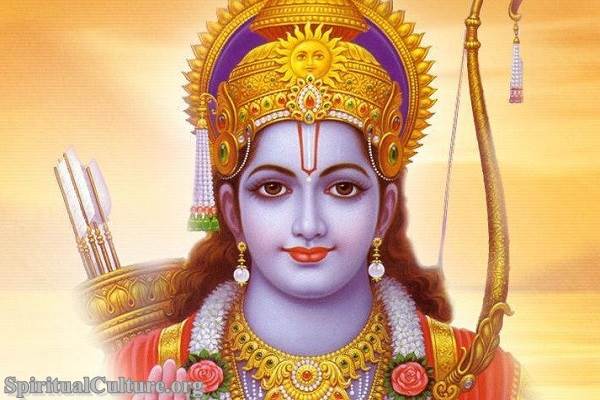As one of the most revered deities in the pantheon of Hindu gods, Rama, the seventh avatar of Lord Vishnu, holds a special place in the hearts of millions of followers worldwide. Known for his impeccable virtues, unwavering righteousness, and exceptional martial prowess, Rama is considered the perfect man or the ‘Maryada Purushottam.’ This article aims to explore the meaning of the Hindu god Rama, his role in Hinduism, and his impact on the Hindu culture and way of life.

Rama god.
Hinduism, a religion with a history spanning thousands of years, is a rich tapestry of philosophical concepts, rituals, and deities. Rama is an esteemed god among the many gods worshipped in Hinduism. The epic Ramayana, written by the sage Valmiki, recounts Rama’s life and deeds, providing followers with a blueprint for leading a virtuous life.
The story of Rama is not merely a tale of heroism and adventure; it is a profound spiritual guide that imparts essential life lessons. Rama’s life is a testament to the practice of dharma (righteousness), even in the face of severe trials and tribulations. His unwavering adherence to truth, respect for elders, devotion to his wife Sita, and compassionate nature make him an ideal king, a perfect husband, a loving brother, and a loyal friend.
The Hindu god Rama is also known for his martial skills. Trained by the sage Vishwamitra, Rama mastered the art of archery and warfare. He is often depicted with his bow and arrow, symbols of his readiness to destroy evil and protect righteousness. His victory over the demon king Ravana, who had abducted his wife, Sita, is celebrated as the festival of Dussehra, symbolizing the triumph of good over evil.
Rama’s influence extends beyond the religious sphere and permeates every aspect of Hindu culture. His life and teachings have inspired countless literature, art, music, and dance works. The Ramayana has been retold in various languages and forms, reflecting the deep-rooted influence of Rama in the collective consciousness of the Hindu community.
The practice of Rama-Nama, the repetition of the name ‘Rama,’ is considered a powerful spiritual practice in Hinduism. Chanting Rama’s name is believed to cleanse the mind, bring peace, and lead to moksha (liberation from the cycle of birth and death). The great saint Tulsidas, author of the Ramcharitmanas, was a fervent devotee of Rama and propagated the power of Rama-Nama.
In the Hindu tradition, Rama is also worshipped as part of the Rama Navami festival, which celebrates his birth. Devotees observe fasts, participate in processions, and perform special prayers and rituals on this day. The festival underscores the meaning of Rama as a divine embodiment of righteousness and virtue.
In conclusion, Rama is not just a Hindu god; he is a symbol of moral and ethical principles that are at the heart of Hindu dharma. His life serves as an ideal for individuals to follow, emphasizing truth, righteousness, and dedication to duty. As the seventh avatar of Lord Vishnu, Rama’s role in upholding dharma resonates with millions of Hindus worldwide, making him an integral part of Hinduism and Hindu culture.

